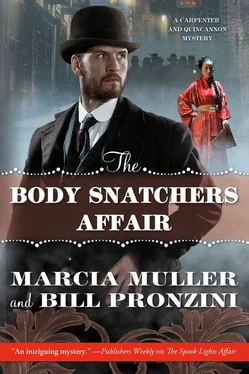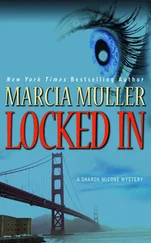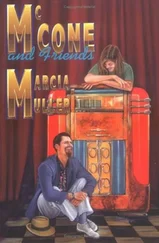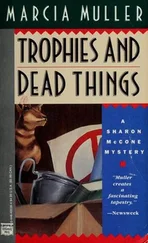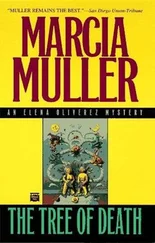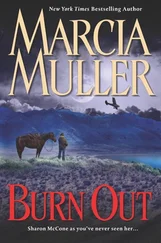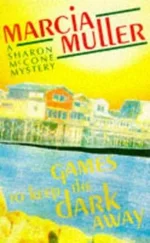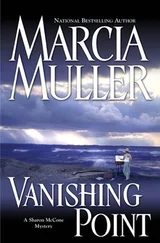The whole business smacked of hidden motives, to be sure. And hidden dangers. He did not like to be made a pawn in any piece of intrigue for any reason. He disliked it almost as much as being shot at, intentionally or otherwise, and failing at a job he had been retained to do. He meant to get to the bottom of it, with or without official sanction.
Few door latches had ever withstood his ministrations with lock picks and skeleton keys, and the one on the entrance to James Scarlett’s building was no exception. Another lawyer occupied the downstairs rooms; Quincannon climbed a creaky staircase to the second floor. He had no need to use quasi-legal means to gain access here: the pebbled glass door imprinted with the words J. H. SCARLETT, ATTORNEY-AT-LAW was not locked. This puzzled him somewhat, though not for long.
Inside, he struck a lucifer, found and lighted the gas — the building was too old and shabby to have been wired for electricity. Its pale glow showed him an anteroom containing two desks whose bare surfaces indicated that they might never have been used. According to Andrea Scarlett, her husband had intended to move to more fashionable downtown offices, and to hire both a law clerk and a secretary, but the combination of his work for the Hip Sing and his increasingly powerful opium addiction had kept him rooted here.
Quincannon proceeded through a doorway into Scarlett’s private sanctum. His first impression was that the lawyer had been a remarkably untidy individual. A few seconds later he revised this opinion; the office had been searched in what appeared to be a hurried and careless fashion. Papers littered the top of a large oak desk, the floor around it and the floor before a bank of wooden file cases. Two of the file drawers were partly open, manila folders yanked half out and askew inside. A wastebasket behind the desk had been overturned and its contents strewn about. A shelf of dusty law books showed signs of having been pawed through as well.
The work of a highbinder? Possibly, though the search struck him as a a good deal less destructive than what he was used to seeing from henchmen of any race. Done, then, by someone who wanted it to look like one of the boo how doy was responsible?
The smell of must and mildew wrinkled his nostrils as he crossed to the desk, giving him to wonder just how much time Scarlett had spent in these premises in recent weeks. The office wanted a good airing, if not a match to purge it completely. Scowling, he sifted through the papers on and below the desk.
There were several files concerning Scarlett’s recent clients, almost all of whom were Hip Sing Chinese he had defended in court, with surprising success, on gambling and other criminal charges. One bore a label with a familiar name: Mock Don Yuen, the successor to Bing Ah Kee as head of the tong. Just what Scarlett had been doing on behalf of Mock Don Yuen was unclear. The scant file contained only a pair of legal briefs that concerned gambling-related court cases in which Mock Don Yuen had been called upon to testify, and a two-page document composed entirely of Chinese characters. Written by the tong leader, perhaps? In any event it must have had something to do with him, else it wouldn’t have been in his file. Quincannon removed the document and folded it into his pocket.
The desk drawers yielded nothing of interest, and the slim accumulation of briefs, letters, and invoices in the file drawers was likewise uninformative. None contained any direct reference to either the Hip Sing or Kwong Dock tongs, or to Fong Ching under his own name or any of his known aliases.
The only interesting thing about the late Mr. Scarlett’s office, other than the document in Mock Don Yuen’s file, was the state in which Quincannon had found it. What had the previous intruder been searching for? And whatever it was, had he left with what he’d come after?
The Scarletts’ home address, in the polyglot neighborhood known as Cow Hollow, turned out to be a three-story wood-and-brick apartment building with an ornate façade. They had lived there only a short while, Andrea Scarlett had said, having moved from “a less comfortable” residence at her insistence once the Hip Sing arrangement had been made.
The windows facing the street in their third-floor apartment were all dark. But this proved not to be because Mrs. Scarlett had retired for the night. Quincannon knocked several times, loud enough to rouse even the heaviest sleeper. Not at home at this hour?
The second of his skeleton keys opened the locked door. A hasty search revealed no sign of her. Each of the four large rooms was empty and showed no signs of disturbance.
The apartment was chilly, long unheated either by gas or coal fire in the living room fireplace. The sheets on the carelessly made four-poster bed were likewise cold. Nothing in the kitchen indicated that a meal had been prepared or eaten recently. If Andrea Scarlett had been home since her visit to the agency offices late that afternoon, it had been only briefly.
Quincannon resisted the urge to conduct a more thorough search, stepped out, and relocked the door. Well past midnight now. Where was his client at this hour? Hiding out somewhere, unable to bear remaining alone in her home? Possibly. She had been most concerned about her husband during the morning’s interview, but the fact that she had seen someone lurking about the premises the night before had made her afraid for herself as well.
Her absence was worrisome, in any event. Very.
In his rooms on Leavenworth, Quincannon lay sleepless and brooding for much of what remained of the night. Bing Ah Kee’s missing corpse, Scarlett’s murder and the attempt on his own life, the search of the lawyer’s offices, Little Pete, the Kwong Dock, the Hip Sing, the potential actions of Price and Gentry and the Chinatown flying squad. Andrea Scarlett, suddenly a widow and certain to be an understandably upset client. And Sabina and her new swain.
It was the Sabina question that plagued him most into the wee hours. The others would be resolved, one way or another, in relatively short order. But Sabina’s involvement with this Montgomery gent was a mystery — one he’d only just learned about by accident, and that she steadfastly refused to discuss — that could have long-reaching implications and might not be solvable at all, depending on the seriousness of her interest in Montgomery and his in her. If it was merely an interlude, an innocent infatuation, then there was no cause for concern. Ah, but if it was serious to the point of intimacy, perhaps even engagement and marriage...
Thunder and blazes! Quincannon’s heart was hard enough when it came to the female sex, but not indestructible. His partner, the object of his unrequited desire, was the one woman who could break it.
On his way down Market Street from his cable car stop on Wednesday morning, Quincannon paused at a news vendor’s stand to buy copies of the Chronicle and the Morning Call. He opened the former first as he walked. As he’d feared, the newshounds had gotten wind of the previous night’s shooting. The murder of a white man in Chinatown even provoked outrage against the “heathen Chinee” in the city’s largest and perhaps most conservative sheet, the Chronicle . Its editorial staff, like that of the Call, ballyhooed the incident with front-page headlines.
PROMINENT ATTORNEY SLAIN IN CHINATOWN
James Scarlett Gunned Down in Ross Alley
Police Fear Threat of Tong War
Faugh. Prominent attorney, my hindquarters, Quincannon thought. Typical journalistic twaddle. Why should the sudden demise of an opium-addicted shyster elevate him to a position of prominence in the legal community? If every lawyer in San Francisco guilty of corrupt or dubious practices was suddenly murdered, and there were a great many who deserved that fate, they would no doubt be lionized in the press as brilliant and virtuous defenders of the law.
Читать дальше
